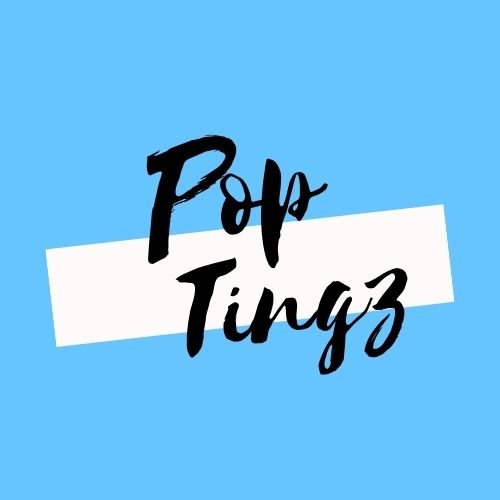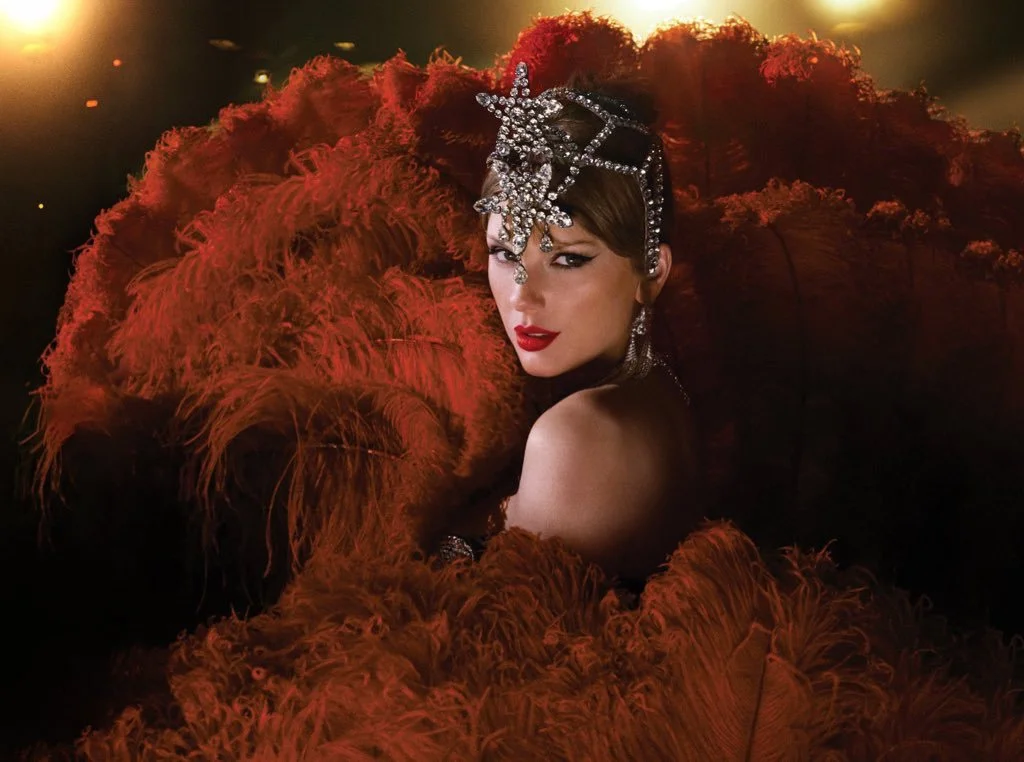Taylor Swift’s “The Life of a Showgirl”; Sequins Without Spark
It’s been just over a year since Taylor Swift last fed the pop machine, and now she returns with The Life of a Showgirl, her 12th studio album. Offering 12 songs in 42 minutes, the album reunites Swift with Max Martin and Shellback, the Swedish duo behind her most iconic pop of the 2010s. On paper, it should be a return to blockbuster form. In practice, it’s something murkier: bright and polished, but frustratingly hollow.
The title itself, The Life of a Showgirl, is an odd bait-and-switch. Despite the cabaret and burlesque aesthetic that defines the photoshoots, the songs bear no resemblance to sequins or swing. It’s a pattern Swift’s fans know all too well; visuals that promise a concept album, followed by music that wanders elsewhere.
The record opens strong with “The Fate of Ophelia,” a piano-led track that swells into a pounding beat and an expanding bridge: “you saved my heart from the fate of ophelia.” Its upbeat bassline and dramatic key change recall her knack for drama and reinvention. That energy carries into “Elizabeth Taylor,” where violins and a thumping beat frame her musings: “what could you possibly get for a girl who has everything and nothing all at once? / I can’t have fun if I can’t have you.” And then there’s “Opalite,” perhaps the album’s most irresistible moment: ABBA-inspired guitar jangles and disco refrains give it a dazzling shimmer, a reminder of Swift’s skill and potenial.
Unfortunately, the rest of the album doesn’t always live up to that promise. “Actually Romantic” in particular stands out, not for brilliance, but for missed opportunity. With its addictive punky guitars and early-2000s pop-rock edge, the track had the potential to be a raw, exhilarating detour. Instead, it's an attempted diss at Charli xcx. The title riffs on Charli’s “sympathy is a knife,” widely interpreted as a critique of Swift herself. Charli’s lyrics cut with self-reflection and internal struggles, while Swift’s response here feels strangely tone-deaf, reframing Charli’s knife-sharp observations into something toothless and literal. Given the firepower production behind the track, it’s surprising how flat it lands, especially when compared to Swift’s history of clever, layered takedowns and undeniable talented lyricism.
Elsewhere, provocation ranges from effective to eye-roll. “Father Figure” interpolates George Michael but stumbles into awkward shock value with the line, “you made a deal with this devil / turns out my dick’s bigger.” “Wood” leans into funk-inspired-Jackson 5 grooves but collapses under cringe-worthy innuendo about “magic wands” and “redwood trees.” “Eldest Daughter” strips down to strings and pain-heavy vocals, with Swift reflecting: “I’m not a bad bitch and this isn’t savage.” By contrast, “Ruin the Friendship” is devastating in its restraint, a song about unspoken desire and missed chances, culminating in regret after a friend’s death: “might piss your ex off… should’ve kissed you anyway.” It’s a stark reminder of Swift’s ability to turn narrative into catharsis when she doesn’t overplay the punchline.
The rest veers between highs and lows. “Wi$h Li$t” sparkles with 1989-era synths and glittery beats, only to undercut itself with lightweight celebrity wish lists before circling back to cliché sincerity (“we tell the world to leave us the fuck alone and they do”). “CANCELLED!” injects some reputation-style grit with guitars and a spoken-word verse and warning: “It’s a good thing I like my friends canceled.” “Honey” offers a small but endearing revelation: the reclamation of a word once despised, “you can call me honey if you want ‘cause I’m the one you want”, but lacks a lot of sparkle.
The album closes with a take on the title track, “The Life of a Showgirl” (feat. Sabrina Carpenter). Here, the lyrical narrative finally fits the name. With claps, violins, and Carpenter’s belting, it builds into a dreamy crescendo before dissolving into an Eras Tour goodbye audio from the duo. It’s theatrical, emotional, and a rare moment where concept and execution align.
Still, across the album, Swift’s instincts feel hurried. There are flashes of brilliance: “Opalite,” “The Fate of Ophelia,” “Elizabeth Taylor”; but few true pop bangers, and a noticeable absence of the earworm hooks that once defined her. The production is sleek, but Swift’s lyrics, once her sharpest weapon, sometimes feel like first drafts in search of a sharper edit.
The Life of a Showgirl is bright and light with a bit of teeth, but it leaves a lingering sense that Swift needed more time to let it all simmer. Her conversational, melodic singing remains as appealing as ever. Yet despite its polish, this is an album that proves not every spotlight guarantees a showstopper. For all its sequins and spotlights, the album feels less like the main event and more like an intermission; a reminder that even a master showgirl can occasionally miss her mark.

